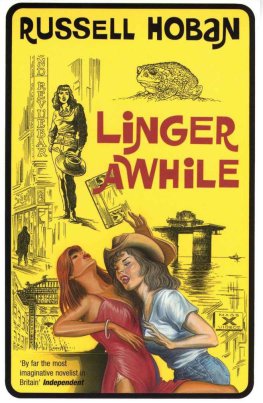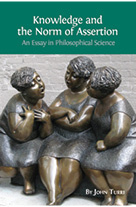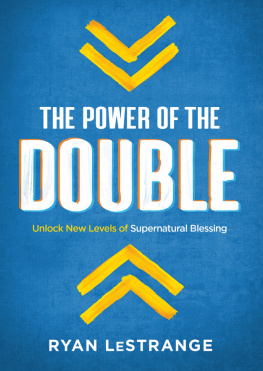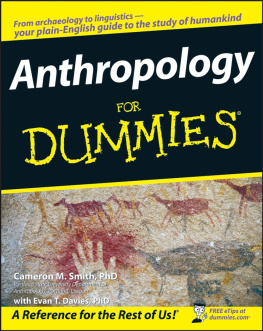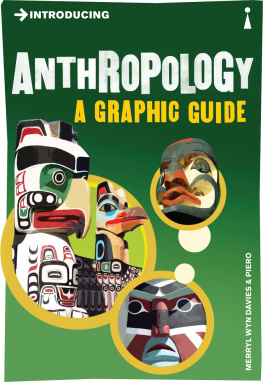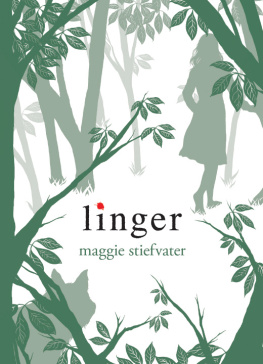Introduction
The Double Lens
On the way to the new millennium, anthropology, still a young field, became prematurely forgetful. Anthropos almost vanished, crowded out by culture, the disciplines celebrated contribution to social science. That contribution has been valuable, but too imperious in its claim on human lives. This book, while reserving an important place for culture, seeks to recover a focus on human beings for an anthropology worthy of its name.
The essays collected herein run against the strong culturalist current that has carried anthropology for the past several decades. Culturalism is a type of social or historical determinism. It consigns human beings to the margins of the analysis, as incidental to culture or else, more tendentiously, as cultures effects. Its job is the interpretation of public representations, or symbolswords, images, performances, and narrativeswhich, it is said or implied, hold human minds in their thrall. Culturalism has a long pedigree in anthropology, especially in the United States, but recently it has, in its discursivist guise and in tandem with parallel shifts in critical and textual theory, achieved a position of near-dominance in the discipline. Indeed, many anthropologists now say that they practice cultural studies, an emerging, heavily discursivist field strongly influenced by literary criticism.
To be sure, culturalism opens up unique and fascinating problems. Culturalist perspectives illuminate human affairs from an intriguing angle, suggesting that human groups (tribes, nations, ethnicities, classes, castes, genders, and so on) cut up the world into arbitrary chunks, represented by arrays of symbols. In newer, more radical versions of culturalism, representations constitute, fragment, and reconfigure groups themselves. Culturalism encourages studies of the diverse frameworks of thought and feeling that purportedly ensnare us all. The thousands of ethnographies gathered in any university library attest to the fecundity of culturalist theories and their associated research practices.
But culturalism bears a high cost. That is why its triumph has not been complete. Many anthropologists, myself included, have now come to view the culturalist wave with reserve. Culturalism seems reductive. It arrogates too much to its own domain, disfiguring and oversimplifying human worlds. One line of criticism has emphasized culturalisms appropriation of economic and political relations, its penchant for converting the materialities of social interaction into constructions of culture or discourse (Shaw 1995: ch. 1). Equally serious is the issue I highlight in this book: culturalisms tendency to turn personal experience and human minds into derivative, spectral phenomena.
Some of my colleagues despair that anthropology may already be a lost cause for human (as opposed to cultural) studies. Research on human beings, they contend, is not going away, but will simply move elsewhere (DAndrade 2000). They are certainly right that the study of human beings will not disappear, and they may be right about its future emigration from anthropology, but I do not believe that weanthropologists concerned with substantial personal worlds, and skeptical of what Dennis Wrong long ago (1961) called the oversocialized conception of manshould lightly surrender a field to which we have contributed so much and which still, given its unusual perspective and its distinctive sensibilities, has so much to offer.
I outline a possible route to a cultural anthropology that, building on the insights of disciplinary ancestors and contemporaries, opens vistas for future work encompassing public and personal worlds. The double lens of the title refers to a theoretical eye holding both worlds in focus. I offer a view, through the double lens, of anthropologys central concern: human worlds, in all their plenitude, variability, specificity, and complexity.
Beyond the Cultural Relativity Effect
The essays presented here draw on my ethnographic fieldwork in Brazil, done mostly in the mid-1980s, and in Japan, a decade later. I worked primarily in two cities: So Lus, capital of the northeastern Brazilian state of Maranho; and Toyota City, an industrial hub of central Honshu. In So Lus, I looked at local politics, Carnival, and interpersonal violence. In Toyota City, I examined the identity quandaries of Brazilian migrants of Japanese descent. Although the research topics were disparate, the theoretical focus remained the same: the intersection of public and personal worlds.
Strange as it may sound, over this period I gradually learned what I was talking about. Gregory Bateson once described theoretical advance in dynamic terms, as a dialectic between loose thinking, or heuristic play, and strict thinking, the hammering of intuitions and guesses into formal schemes (1972a). My own practice has likewise zig-zagged, crablike, between imagination and tentative formalization. I have come to understand better, and learned to formulate more precisely, my own concerns, presuppositions, and models. Such learning is not unusual among anthropologists, or among people in general. We speak or write, only later discovering what it is we have been trying to say. Then comes a moment when it makes sense to state it more coherently. I am writing this book at that moment of provisional lucidity.
Much of my work, I now see, has been spurred by a maddening ethnographic riddle: how to account for the vexing gap between abstractions of culture and specificities of persons and events. Initially, the problem appeared to me as the Cultural Relativity Effect. The first sentences of the first page of the preface of my first book read:
Doing anthropological fieldwork, I, like many others, sometimes experienced a frustrating relativity effect: the closer I moved toward a phenomenon, the faster it seemed to recede from my grasp. Every step forward revealed new complexities. The problem seems especially to bedevil the study of culture, something that when seen from a distance can appear monolithic and systematic but when viewed up close, in the ideas and feelings of individuals, seems to fragment into bewildering shards. (Linger 1992: vii)
Bewildering shards: a metaphor for the brute materiality and astonishing irregularity of peoples lives, so disconcertingly detached from the neat construct culture that pretends to speak for them. How does one reconcile such apparently antagonistic perceptions?




